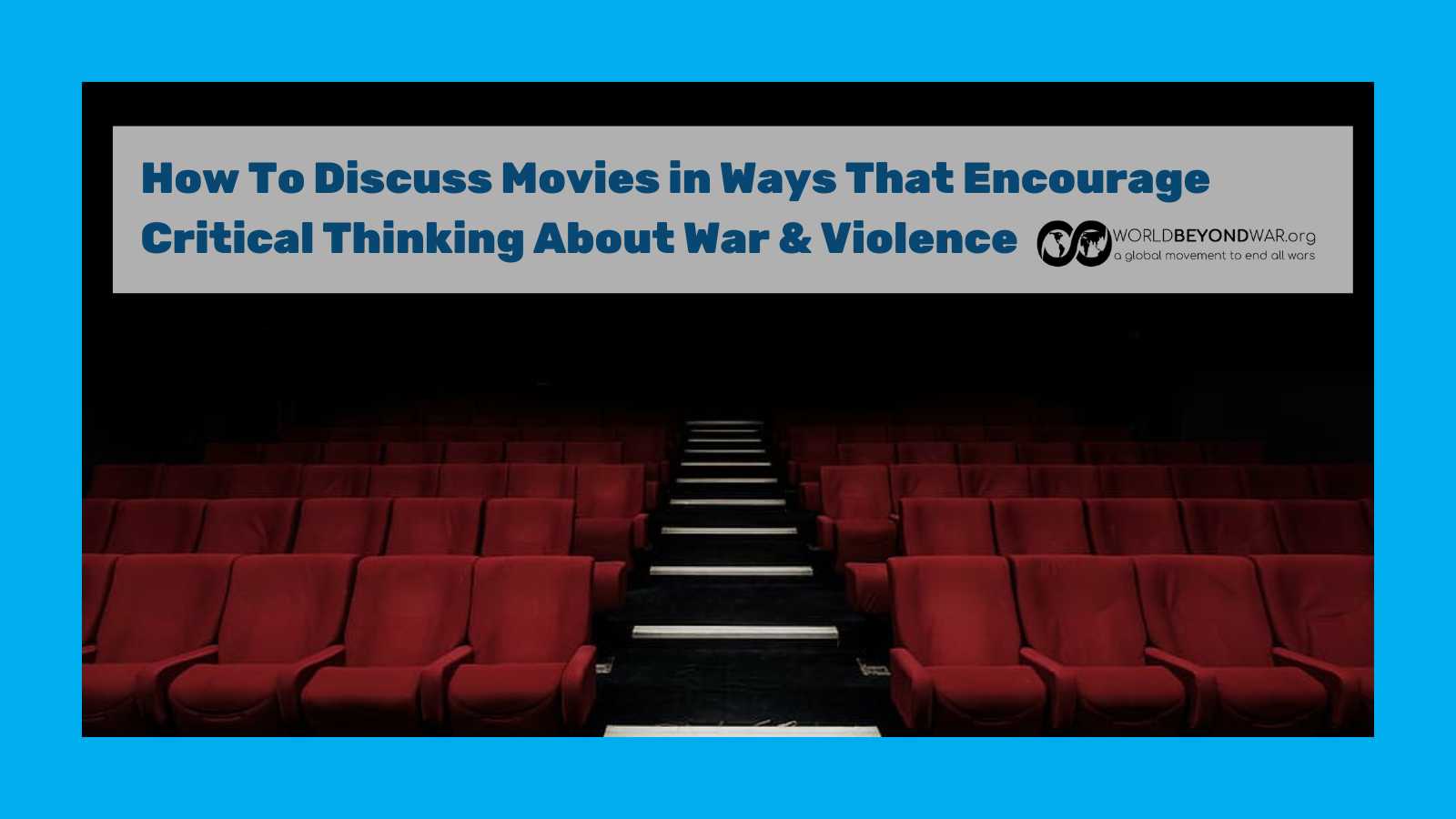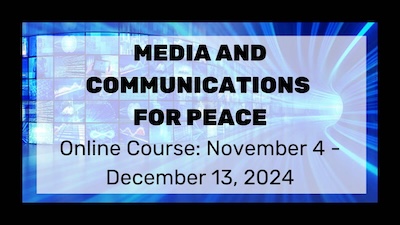
By Rivera Sun for/with the World BEYOND War & Campaign Nonviolence Culture Jamming Team, May 26, 2023
Our friends and families love to watch movies. With the increasing amounts of violence and war being depicted, we can use pop culture as a chance to encourage critical thinking about the stories we’re telling about war and violence . . . versus peace and nonviolence.
Here are some questions you can use on any movie to encourage anyone to think critically and thoughtfully about narratives of war and peace, violence and nonviolence. This is not an exhaustive list … so be creative and think of your own conversation-starters!
- Does this movie glorify war or violence? How so?
- How realistic or unrealistic was the violence that was depicted?
- Did incidents of violence come with realistic consequences (legal action, PTSD, remorse, retaliation)?
- Did you feel the uses of violence were gratuitous? Did they serve a point? Did they move the plot along?
- How many times did you flinch or wince while watching this movie? Do you think this amount of violence is healthy for us to view in ‘entertainment’?
- How much violence in a movie is “too much”?
- What did this movie tell us about our world? Is that a helpful or harmful belief? (i.e. most superhero movies say that the world is a dangerous place and only powerful vigilantes can save us. Is this helpful?)
- Were there any acts of peace or efforts to prevent the war? What were they?
- Were there any peace efforts that were portrayed as effective?
- What kinds of nonviolent action or peace strategies might have changed the storyline? Where could they be used? Who could use them?
- Did anyone de-escalate a brewing fight? (i.e. tell two guys in a bar to chill out)
- How did the characters escalate the situation toward violence? How did they de-escalate it?
- How many people were “collateral damage” to this plot line? (Think about car chases – how many other drivers/passengers were killed or injured?)
- Which of the protagonists were not involved in violence and war? What were their actions, professions, or roles?
- Were there any characters who refused to participate in the violence or war?
- Why did the characters come to blows? What else could they have done to solve their conflict?
- Is war portrayed as noble or justified? Do you think real life wars are noble?
- Was magic or superpowers involved? How could the heroes have used those abilities to end war or stop violence rather than engaging in those?
- Was war portrayed as inevitable? How did the scriptwriter and director make it seem so?
- Was violence by the “bad guys” show as immoral? How was this different from the violence of the “good guys”?
- If you were on the other side, how would you feel about the “good guys’” actions?
Where can you use these questions?
- Talking with your teenagers about the latest superhero movie.
- Discussing animations with your younger kids.
- Hanging out with an old buddy of yours.
- When your friends mention they just went to see [insert movie name]
- When your coworkers start chatting about their latest binge-watching series.
Examples of using these questions:
In Everything Everywhere All At Once, Michelle Yeow’s character eventually realizes that through the power to manipulate the multiverse, she can turn bullets into soap bubbles and punches into puppies. How else could this power to change the multiverse be used to prevent war and violence throughout the Marvel Universe?
In the Bourne Movies, ex-CIA assassin Jason Bourne has numerous car chases. How many people are smashed, crashed, and harmed as the two main characters race through crowded streets? What else could Jason Bourne have done besides chase the other car?
In Wakanda Forever, Shuri almost succeeds in building an alliance with Namor’s underwater nation. What interrupted their diplomacy? How would the plot have been different had Shuri succeeded?
In the Star Trek reboots, is there more or less violence than the originals? Why do you think this is?
In Enola Holmes 2, the characters spend most of the movie fighting, shooting, punching, and engaging in sabotage (with the British Suffrage Movement). All of these methods ultimately fail to bring justice to the central conflict. In the end, Enola Holmes leads the factory women in a nonviolent action: a walkout and strike. How would this story have been different if that was the starting point, not the ending?
In the latest trailers, how many of them show acts of violence to “excite” you about the series? What else did you learn about the plot besides that?
You can also go an entirely different route with your movie watching by choosing to watch anti-war and peace-promoting films. Want to explore nonviolent movies? Check out this list and blog from Campaign Nonviolence.








